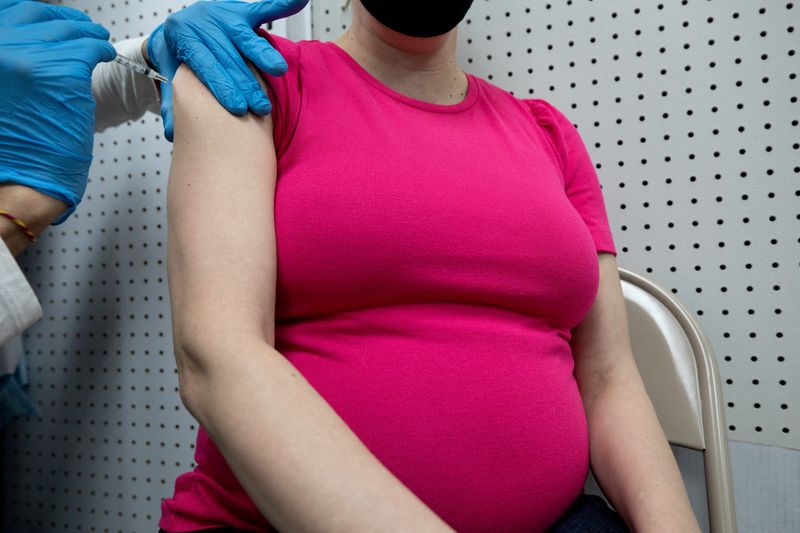By Manas Mishra and Julie Steenhuysen
(Reuters) - Vaccinating pregnant women against the coronavirus may help prevent COVID-19 hospitalizations in infants after they are born, especially if the expecting mothers got the shots later in their pregnancy, U.S. researchers reported on Tuesday.
The findings shed light on whether the benefits of vaccination during pregnancy extend to infants who would be too young to receive vaccines.
Researchers from several pediatric hospitals and the U.S. Centers for Disease Control and Prevention (CDC) looked at children under six months old between July 2021 and January 2022.
The study analyzed data from 379 hospitalized infants - 176 with COVID-19 and 203 who were admitted for other issues. It found that COVID-19 vaccines were 61% effective overall at preventing hospitalizations in children whose mothers were vaccinated during pregnancy.
That protection rose to 80% when the mothers were vaccinated 21 weeks through 14 days before delivery. Vaccination effectiveness fell to 32% for the babies whose mothers were inoculated earlier during pregnancy.
The study authors warned that the estimates for effectiveness earlier in pregnancy should be interpreted with caution due to the small sample size.
“Right now we want to ensure that we are protecting both the mom and the infant," CDC's Dana Meaney-Delman told reporters. "So as soon as a pregnant woman is willing to be vaccinated, she should so ahead and do so."
Pregnant women are at increased risk for severe illness from COVID-19, and having COVID during pregnancy can increase the risk of preterm birth, stillbirth and possibly other pregnancy complications, according to the CDC.

The CDC recommends that women who are pregnant, are breastfeeding, are trying to get pregnant now, or might become pregnant in the future get vaccinated and stay up to date with COVID-19 shots.
Previous studies have shown that COVID-19 vaccination during pregnancy was not associated with preterm delivery or underweight newborns.